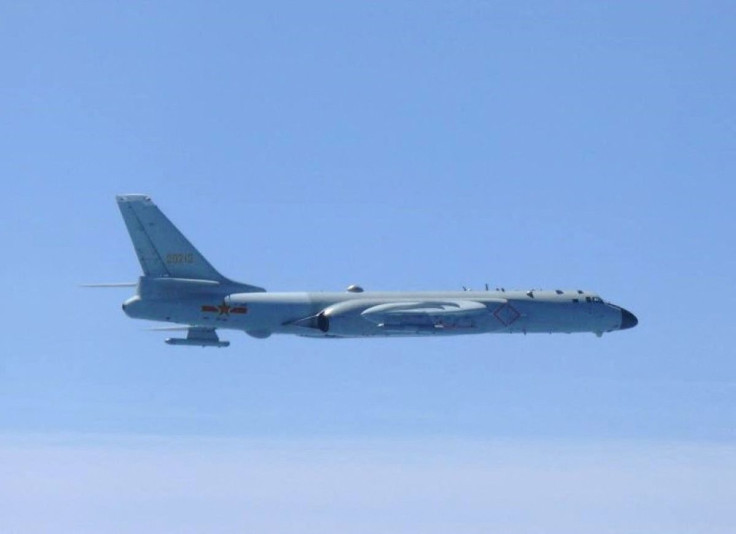China Sends 3 H-6 Bombers With Supersonic Missiles To Fly Near Japan's Coast
KEY POINTS
- The bombers passed over the Miyako Strait into the Pacific Ocean
- Two H-6J bombers were spotted carrying eight YJ-12 anti-ship missiles
- An H-6J jet with electronic pods for jamming enemy radar was also seen
Three Chinese H-6 bombers carrying powerful supersonic cruise missiles reportedly flew over the Miyako Strait in southern Japan last week. Tokyo claimed the flights were intended to show off the People's Liberation Army's (PLA) air and naval force coordination.
According to a statement by the Japanese Defence Ministry, the bombers passed over the Miyako Strait from the East China Sea into the Pacific Ocean on Thursday, then flew back via the same route. This comes days after Japan noticed an uptick in Russian and Chinese warship movements near its coast, which Japanese Defence Minister Nobuo Kishi described as a "show of force."
The ministry also released photographs showing two H-6J bombers carrying eight YJ-12 anti-ship cruise missiles and an H-6J PLA Air Force jet with electronic countermeasure pods for jamming enemy radar, reported South China Morning Post.
The fact that both PLA Navy and Air Force sent H-6 bombers simultaneously through the strait suggests that the sortie was aimed at enhancing coordination during combat, Beijing-based analyst Fu Qianshao told the news outlet.
The YJ-12 anti-ship cruise missiles also called the Eagle Strike missiles, are another version of the ground-based DF-21D. They are considered a major threat due to their ability to outgun traditional naval defensive systems.
Dubbed "carrier killers," the YJ-21 has a range of over 400km, with a warhead that can reach a target within 30 seconds. However, the service status of these air-launched ballistic missiles is not clear yet though it is believed to be still going through pre-service trials.
Japan has recently been witnessing an increased presence of enemy vessels around the Japanese home islands. According to Nobuo Kishi, both China and Russia had sent two separate surface action groups to the region since mid-June. "The fact that about 10 Russian and Chinese ships sail around Japan on the same route in a short period of time is a display of the military presence of both countries around Japan," Kishi told reporters recently.
That being the situation, Japan had recently announced plans to step up its military capability and boost its defense spending. Prime Minister Fumio Kishida said Monday at the G-7 that Tokyo plans to bolster its defense in five years with a substantial increase in military spending.
Immediately after, the Chinese state-backed Global Times had reacted to Kishida's statement, saying it demonstrated "Japan's ambition of gaining international support for its military expansion" ahead of Kishida's attendance at the NATO summit being held in Spain on Tuesday.
Japan's attempt risks breaking the power balance in Asia-Pacific, and its domestic militarism resurgence poses a great threat to regional stability, said the article.

© Copyright IBTimes 2025. All rights reserved.





















